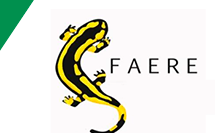Mineral fertilizers are often used by agriculture, all around Europe. Crops require nitrogen for their metabolism and these fertilizers may strongly increase the yields. However, mineral fertilizers, when they are used excessively, may be the cause of several environmental problems. For instance, nitrates, that are seeping into the ground, until groundwaters or steams, can deplete the quality of water. Nitrous oxide, a powerfull green-house gas, which may contribute significtancly to global warming. For these reasons, public authorities need to have tools to controle better the quantity of fertilizers that is spread.
Through AROPAj, a technico-economic model of the supply side of the European Agriculture, an increase of the price of mineral fertilizers (until 200 % of the initial price) was implemented in 6 years, from 2007 to 2012. The purpose of this study is to analyse farmers' behaviour, concerning mineral fertilizing demand, land use or green-house gas emissions when they face the introduction of a tax on fertilizers price, other things being equal.
Results show that an increase in fertilizers price may reduce their consumption but also reduce the green-house gas emission from the agricultural sector in the European Union. More precise simulations for France, in 2009, show that some regions are more affected by a tax on nitrogen fertilizers price than others. These simulations also show that the part of land allocated for cereal crops may decrease, in favor of permanent pasture and wasteland.




